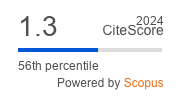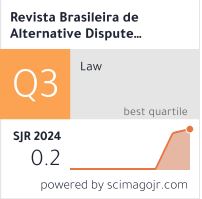Online Sports Betting in Brazil and conflict solution clauses
Keywords:
Sports Betting, Online Dispute Resolution, Brazil, Mediation, ArbitrationAbstract
Sports betting sites are now a reality in Brazil. According to Exame1 magazine, in 2018, it moved around 2 billion reais per year, and with the imminent regulation of Act n. 13.756 /2018, it should move approximately 8 billion reais annually. Online gambling will only reach the peak of its market, according to Rohan Miller,2 when consumers’ risk perception is reduced or neutralized. Questions such as who to look for if something goes wrong and which laws apply in the event of a conflict should be answered clearly by the betting sites’ Terms of Service (EULAs). Therefore, this article’s general objective will be to analyze the methods of conflict resolution included in the Terms of Use of the 9 (nine) main sports betting sites used by Brazilians, namely: 1. Bet365; 2. SportingBet;
3. Betboo; 4. Betway; 5. Rivalo. 6. 22Bet; 7. Betmotion; 8. Bumbet; 9. Bet9. As a specific objective, we will analyze the mediation and arbitration procedures as well as the statistics of two ODR (Online Dispute Resolution) service sites used by the betting sites: the e-Commerce Online Gaming Regulation and Assurance (e-Cogra - online mediation service ) and Independent Betting Adjudication Service (IBAS online arbitration service). Both legally based in England. We could realize that the Brazilian bettor, as a rule, does not read the terms of service and is unaware of the conflict resolution clause provided by the website. Besides, through data analysis from eCOGRA and IBSA, we can state tha tBrazilian gamblers who access ODR service providers are very rare both because they are unaware and because of linguistic difficulties. Also, the chances of success in resolving conflicts in favor of the consumer through mediation are greater than through online arbitration. In short, we can say that the model established by the UK Gambling Act and the Great Britain Gambling Commission is a model that guarantees the fundamental principles of both mediation and arbitration (impartiality, due process, and easy access). The fact that arbitration and mediation are not binding on bettors under any circumstances also guarantees the parties equal treatment.
Downloads
Published
Issue
Section
License
No royalties or other compensation shall be due for the publication of the works.
The opinions expressed by the authors of the articles and reviews are their sole responsibility.









